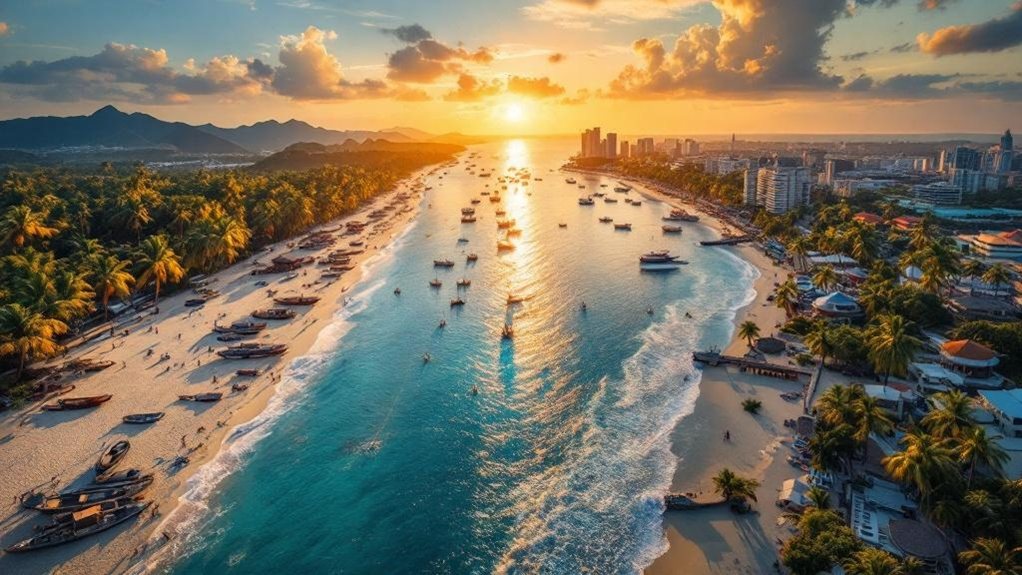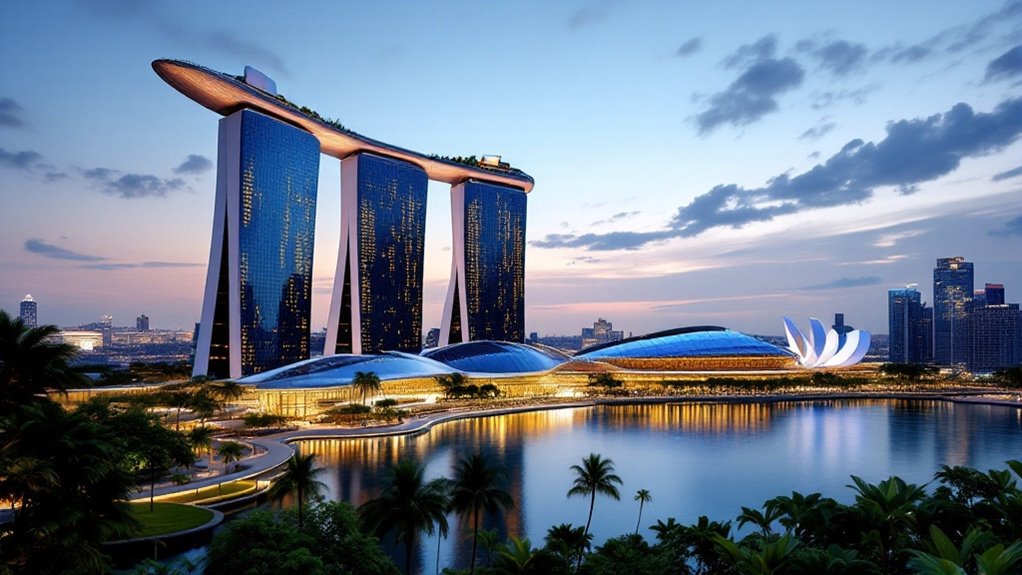Bali has intensified its crackdown on illegal villa operations by launching secret spot checks in popular districts like Canggu, Berawa, and Uluwatu, targeting villas lacking mandatory construction and business permits. Offending owners now face criminal penalties including fines up to IDR 25 million or three months’ imprisonment. Authorities require foreign guests to register with immigration, and unregistered villas risk closure and asset seizure. These measures aim to address safety, environmental, and economic concerns—further details reveal the depth and scope of this campaign.
Intensifying efforts to address rising concerns over unregulated tourism, Bali has launched a targeted crackdown on illegal villas operating across high-traffic areas such as Canggu, Berawa, and Uluwatu. Authorities have begun conducting secret spot checks to identify properties that violate regional regulations, focusing particularly on those bypassing required permits and business licenses. The government now imposes criminal penalties for violations, including fines of up to IDR 25 million or imprisonment for up to three months. In addition, foreign guests staying in villas are now required to be registered through the Immigration Department’s Foreigner Supervision Application, aiming to enhance oversight and accountability.
Bali ramps up secret inspections, targeting illegal villas in hotspots like Canggu and Uluwatu to enforce permits and business licenses.
Illegal villa operations have come under scrutiny for several compliance failures. Properties must possess construction permits that meet Indonesian safety standards, obtain specific business licenses for tourism accommodation, and register their rental operations with the Bali Tourism Office. Many villa owners are failing to obtain proper permits, which significantly increases their risk of legal consequences under the current crackdown. [Non-compliance with these new rules may result in criminal liability for accommodation providers, with potential fines reaching IDR 25 million or imprisonment for up to 3 months.]
Full tax declaration and payment on rental income are mandatory, and staff employment must be consistent with Indonesian labor laws. Offshore payment processing has been flagged as a method for tax evasion, leading authorities to monitor financial transactions more closely and encourage the use of Indonesian banking channels.
The economic and industry impacts of illegal villas are significant, with hotel occupancy rates in some areas declining by 10–20 percent despite steady or increasing tourist arrivals. Unregistered properties create unfair competition for legally compliant accommodations and contribute to substantial tax revenue losses. Enhanced reporting is expected to help detect illegal activities that affect public order and national sovereignty.
The Bali Villa Rental Management Association (BVRMA) has proposed serving as an official verifier for rental villas, supporting a shift toward a verified marketplace. Regulatory collaborations are increasing, with the Bali Tourism Office working closely with tourism associations and immigration authorities to clarify policies and enforce compliance.
Safety and environmental concerns are also prominent, as illegal villas often violate zoning and environmental regulations, lack proper waste management, and fail to implement emergency protocols.
Legal consequences now include forced closure, license revocation, asset seizure, and prosecution for repeat offenders. Owners are encouraged to consult legal professionals, keep documentation updated, and proactively schedule compliance audits to align with the evolving regulatory environment. [Collaboration between various parties is anticipated to enhance foreign supervision in Indonesia, with immigration officials accessing guest data through the APOA platform.









